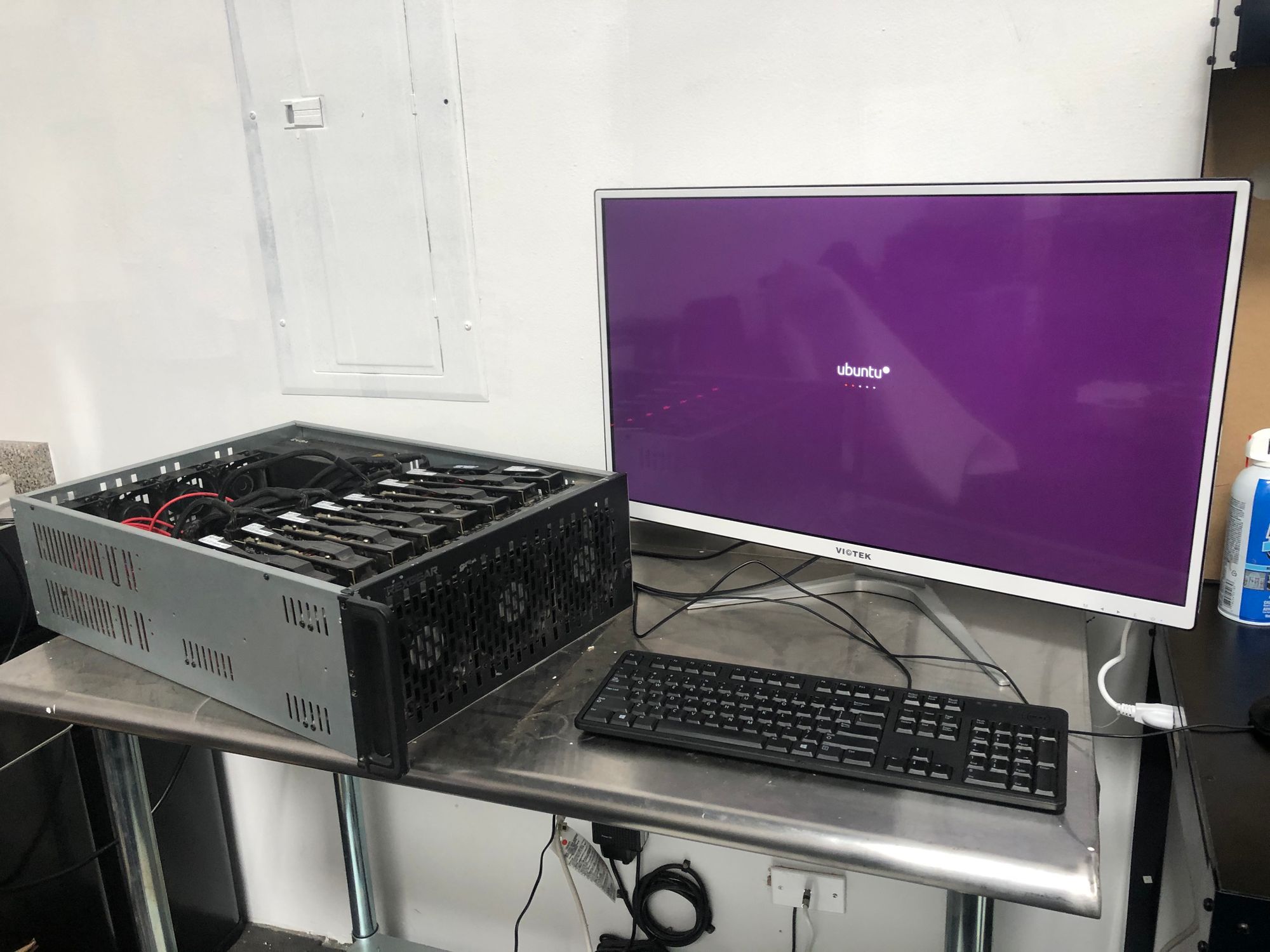Spacepost
A few years ago, I found myself in need of some help. I was the owner of a very expensive, and very broken, piece of equipment.
The equipment in question was a cryptocurrency miner stocked full of graphics cards. A normal computer tends to have a single graphics processing unit (or GPU, for short). This machine had eight. It had eight because GPUs are very good at solving the types of problems that secure the transfer of cryptocurrencies across a network.
Unlike traditional financial institutions, where we pay fees to banks to keep our money secure, cryptocurrencies often work by paying transaction fees to anonymous users who contribute computing power. In my case, the computing power was coming from a machine I had affectionately nicknamed “The Beast”. This machine had a 1200W power supply, eight AMD Radeon RX 580 graphics cards, and enough fans to keep a sports arena cool.
It also happened to be completely dead.
So, I did what anyone would do in my situation: I googled where to find help. Unsurprisingly, it wasn't easy to find individuals with the unique set of skills to help me with my situation. After a few fruitless trips to my local computer store (and blank-faced stares from the clerk), I was almost ready to call it quits.
Until I found Spacepost.
Late on a weeknight, I happened across a post on Meetup.com. The headline read: “West LA Hardware Hacking Hangout”. The description mentioned that there was an upcoming group meeting to talk about computers and work on side projects. I decided to give it a shot.
When I arrived with a box full of packing peanuts and a computer the size of my torso, the group was ecstatic. We tore apart the machine, diagnosed the errors, and had it up with the help of many in the group.

That was three years ago. Since then, Spacepost has become a central fixture of my life in Los Angeles. It’s hard to find a community where membership costs aren’t hidden behind fees or some other form of social obligation. At Spacepost, the only requirement is a genuine interest in technology and a willingness to help others.
I’m more optimistic knowing that places like Spacepost exist. Places like Bell Labs and Xerox PARC were successful because they recruited free-thinking tinkerers who had a deep understanding of many domains across technology and science. This model continues to appear throughout history, from the garages of Menlo Park to the Patron-funded studios of Renaissance Florence. There’s something intoxicating about pursuing knowledge for its own sake, without the constraints of a five-year business plan.
Today, the miner that brought me to Spacepost has been converted to assist with Folding@Home, a collaborative scientific project that helps develop new therapeutics for disease.
The community here is rebuilding itself after the long hiatus of Covid. Slowly at first, while we relearn how to work virtually. Hopefully, we’ll eventually be able to regain the physical presence that introduced me to the group in the first place.
Even knowing that this type of group is possible is motivating for me. It often feels like we’re stifling creativity under the weight of research grants and corporate priorities. I’ve heard more crazy ideas in an afternoon at Spacepost than I did over four years while learning engineering.
If you’re ever in the area and want to say hi, feel free to drop me a note. Just remember that innovation is messy.